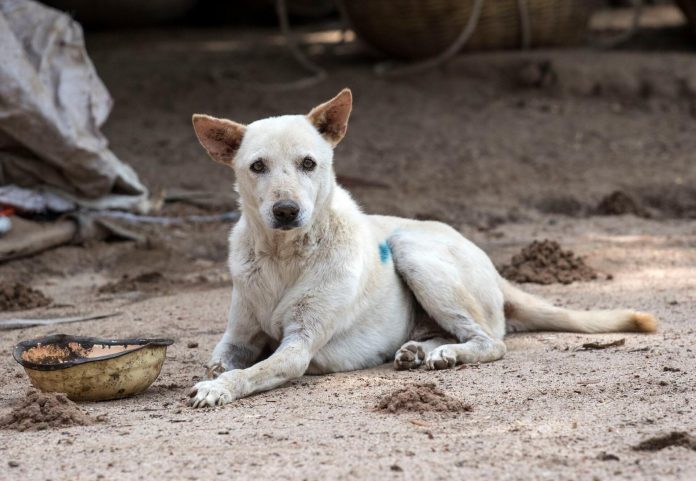The Municipal Affairs Bureau (IAM) has backtracked on its previous legal interpretation of the Animal Protection Law that people who feed stray dogs would be considered as their owners and therefore punishable for abandonment.
In a previous response to a written inquiry by legislator Sulu Sou Ka Hou urging city authorities to opt for a trap-neuter-returnapproach when dealing with stray animals, the IAM President José Tavares stated that it was the government’s position that it is illegal to feed strays and that feeders would face hefty fines.
The bureau head equated stray feeders with animal owners, therefore since animal owners are prohibited from abandoning their animals they could face fines ranging between MOP20,000 and MOP100,000.
Since enforced in 2016 and until July this year some 2,739 penalties concerning animal cruelty cases under the Animal Protection Law were issued.
The position led to outrage from local animal rights groups and activists and even led to a Secretary for Administration and Justice André Cheong Weng Chon public statement opposing this legal interperation.
In a statement issued yesterday (Tyuesday), the IAM accepted that the matter had received the attention of society and that the bureau understood the citizens’ concern and affection for stray animals.
‘Regarding the question of whether or not to feed stray animals violate or not the Animal Protection Law, after a more in-depth legal analysis, the IAM considers that people who defend animals to feed stray dogs are not enough to be considered their owners, so they are also not the target of punishment for abandoning animals, according to the Animal Protection Law,’ the IAM added.
However, city authorities still underlined that for reasons of safety and hygiene, citizens are expected to avoid feeding stray animals.
‘In the future, the IAM will strengthen communication and cooperation with animal protection associations, in order to jointly disclose the substitution of the purchase of animals for adoption and to boost the protection of animals to society,’ the noted indicated.
Previously authorities have opposed the trap-neuter-return approach for strays since they consider after the procedure the animals would still face hunger, injury, disease, and lack of shelter while having a negative impact on residential communities.
About 70 per cent of strays captured by municipal authorities had later been adopted by new owners or been reclaimed by their original owners, however, captured are still regularly put down at the local municipal kennel.





















